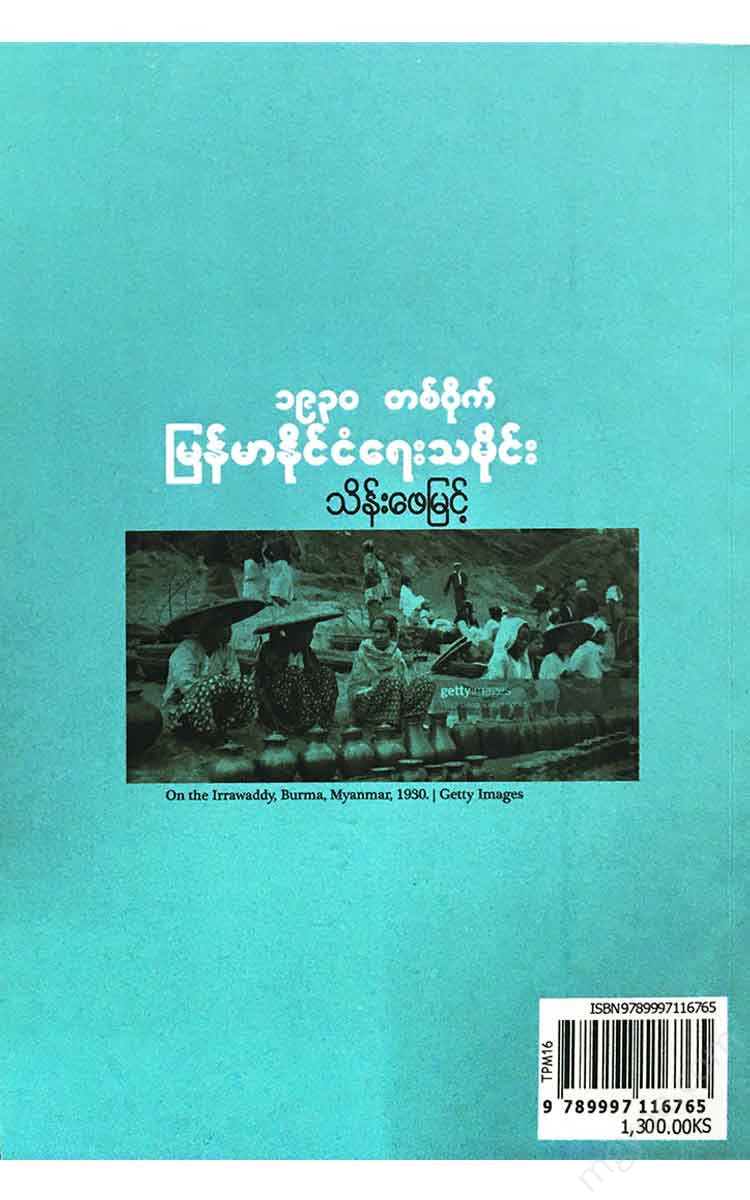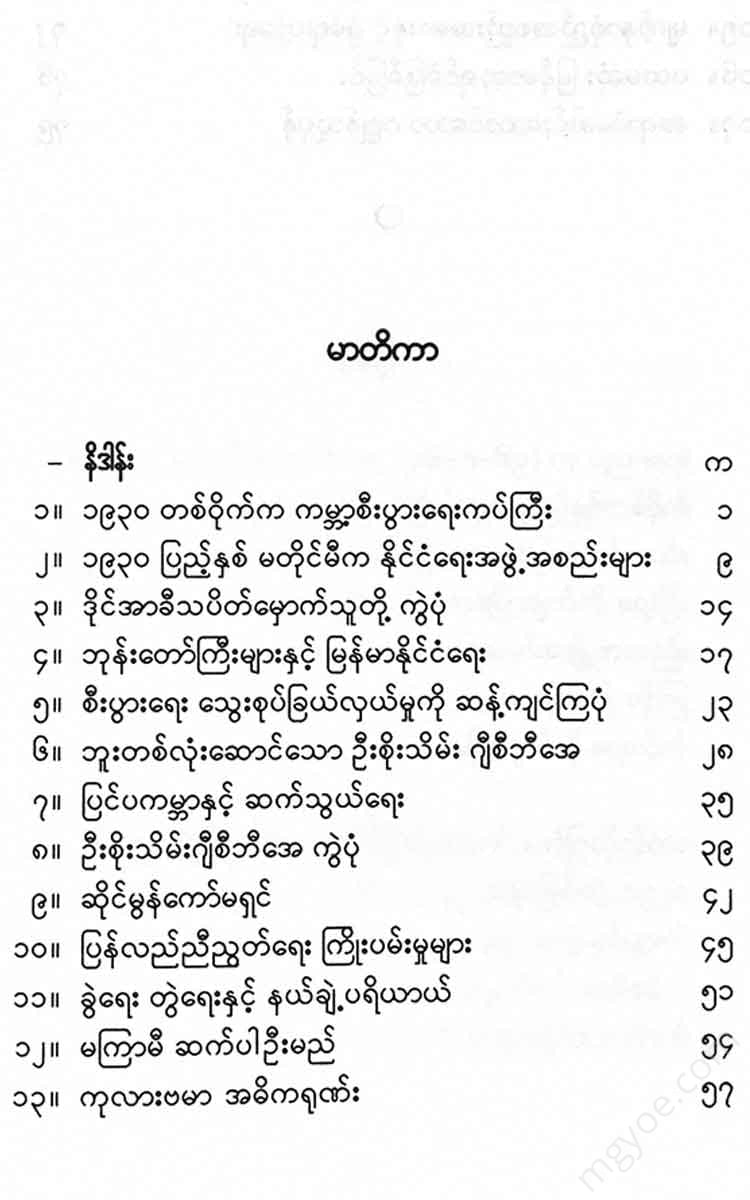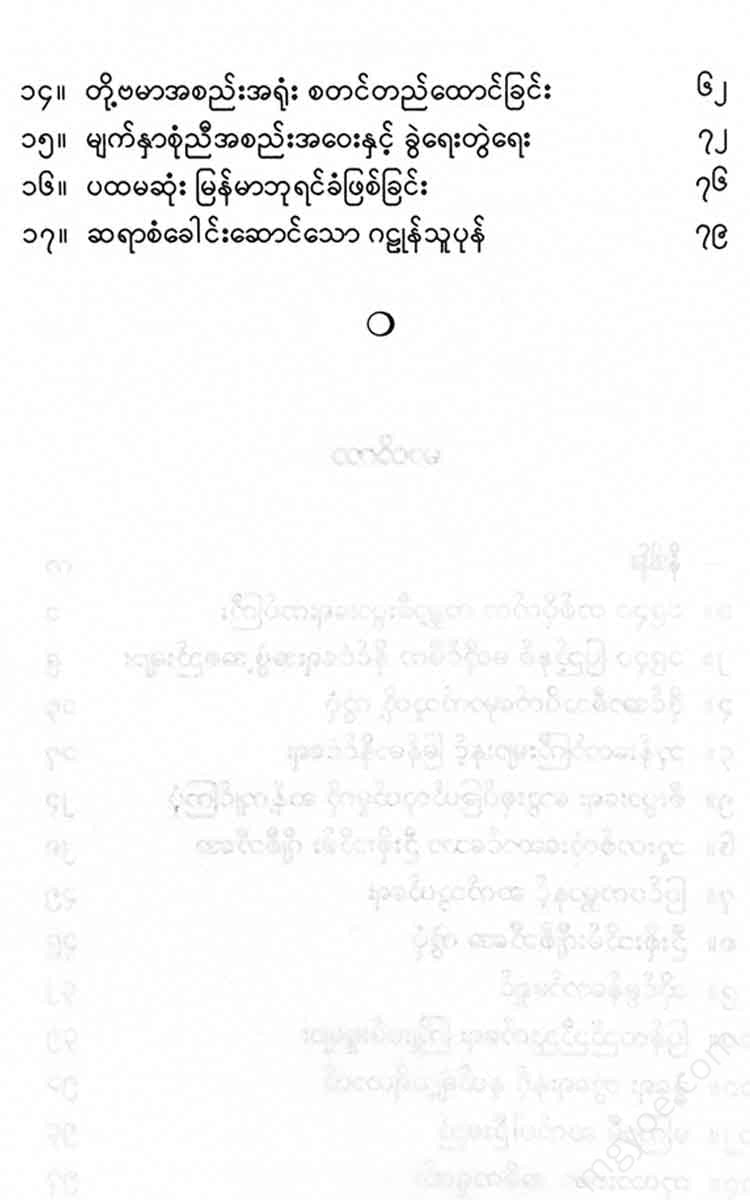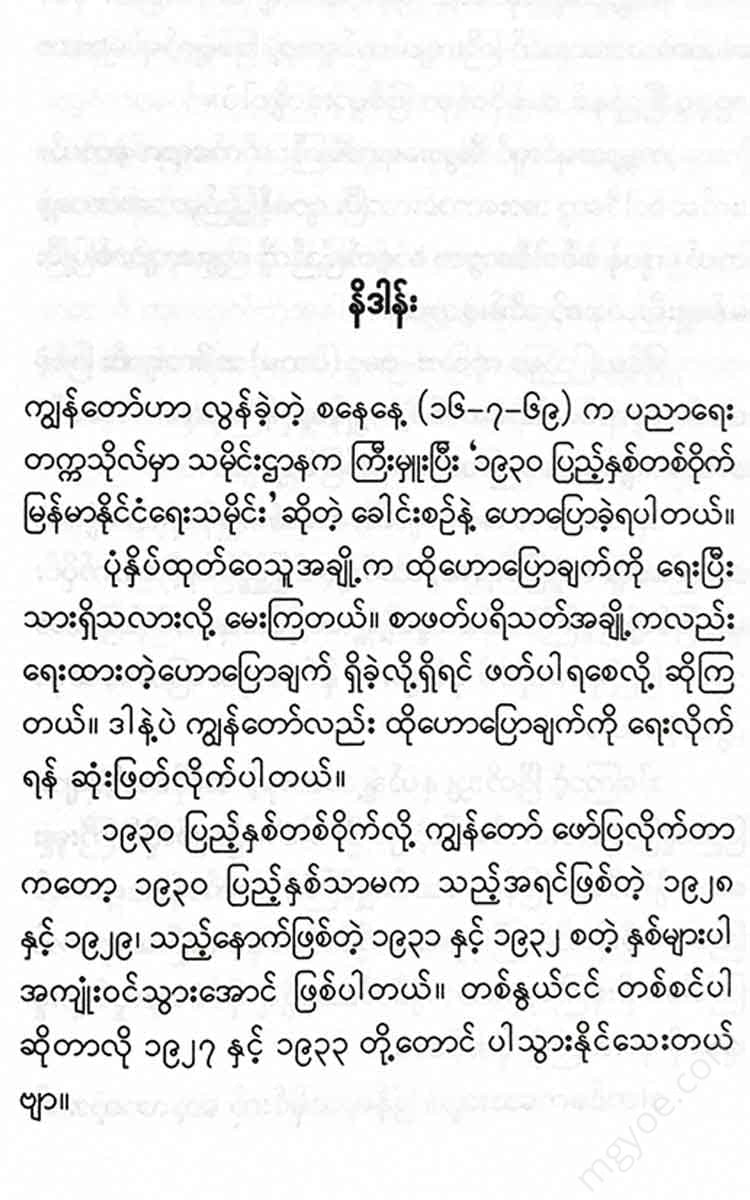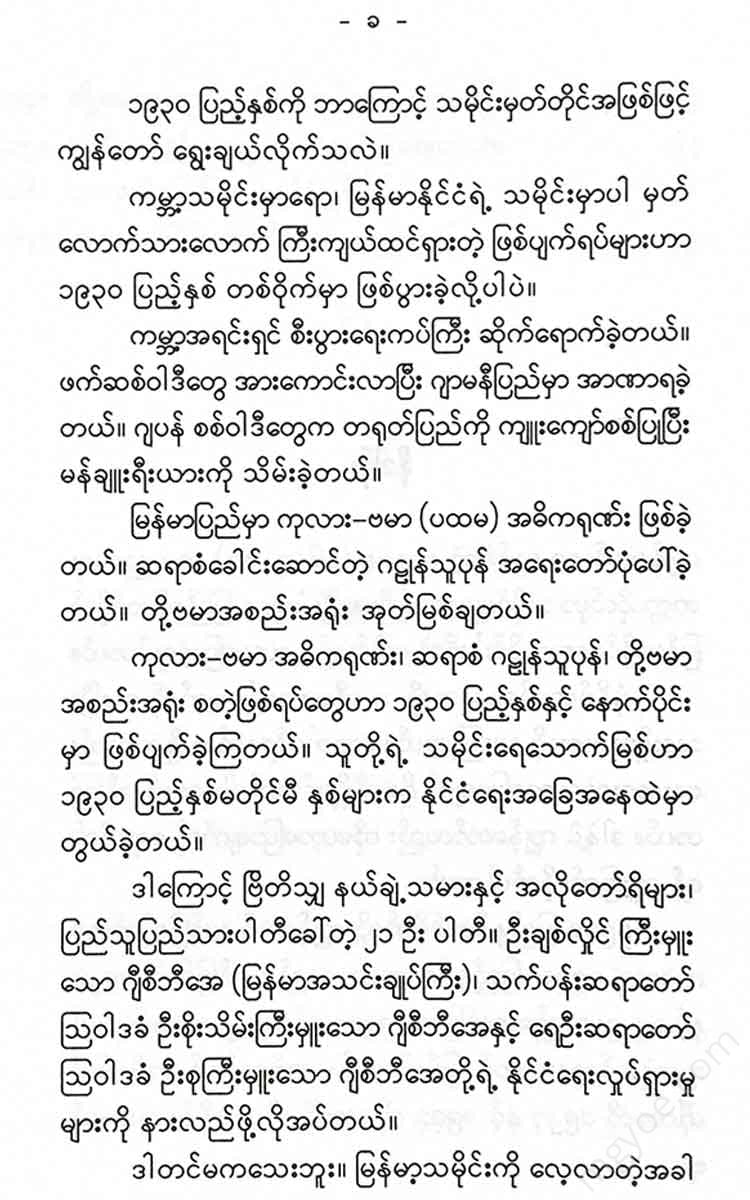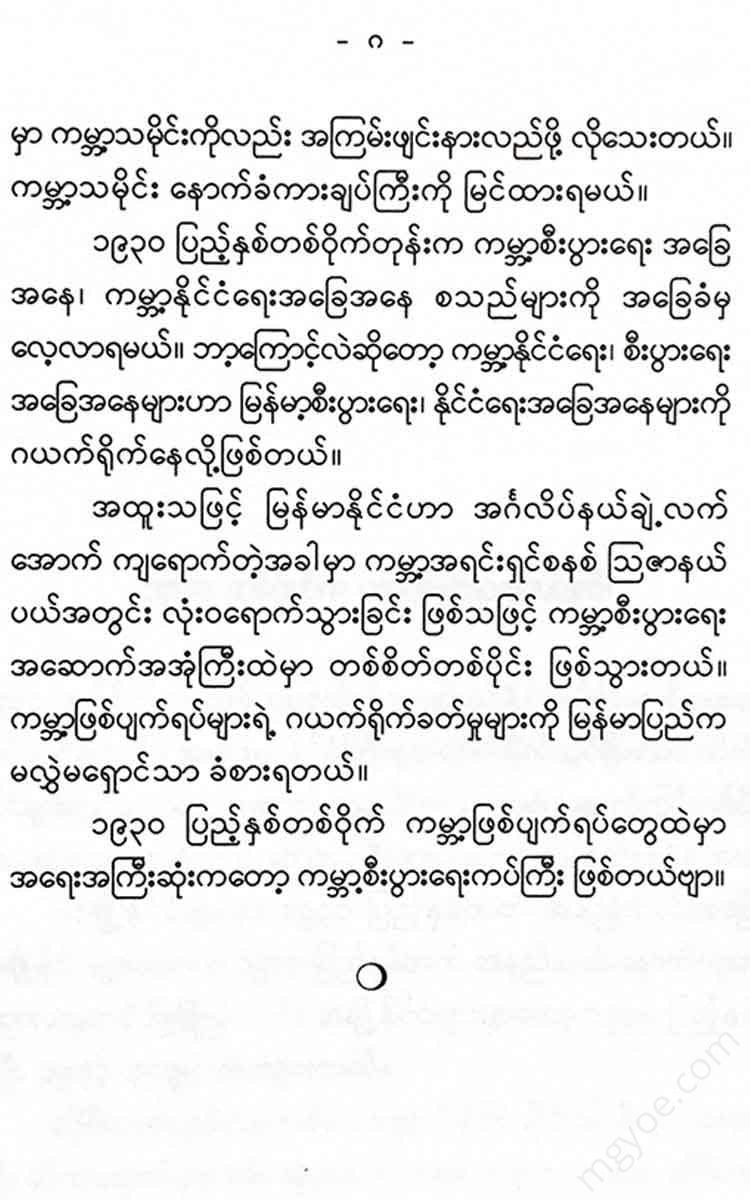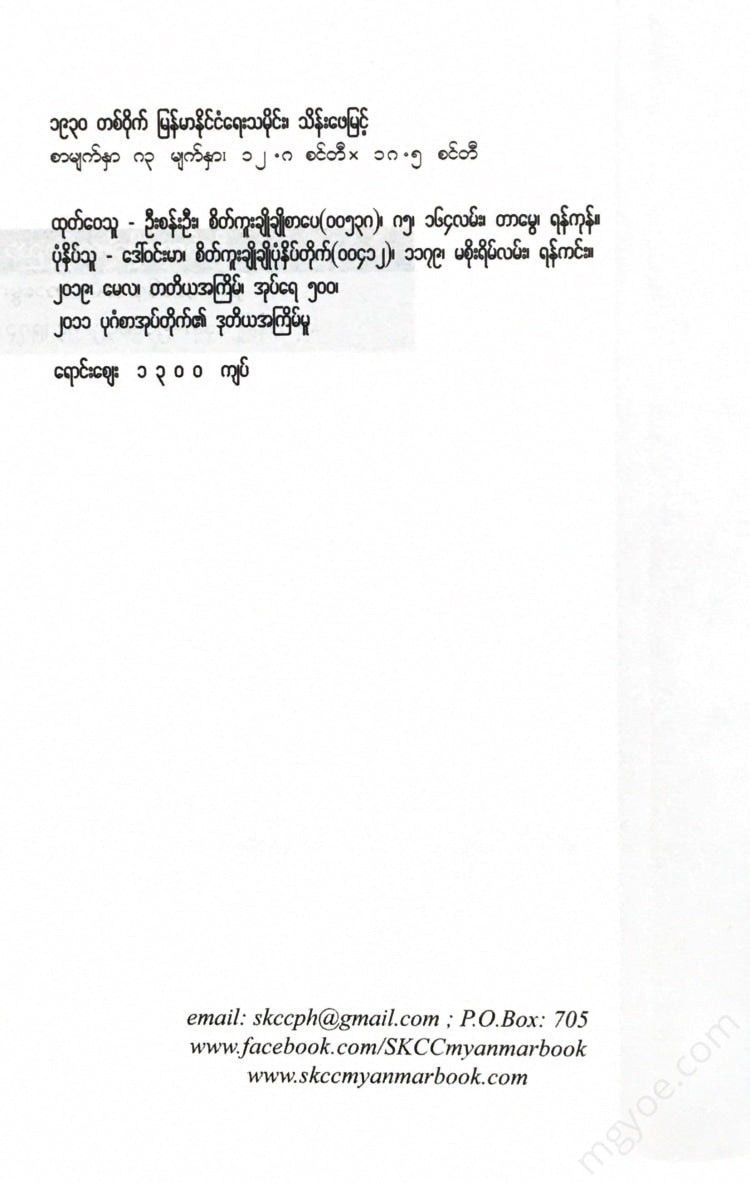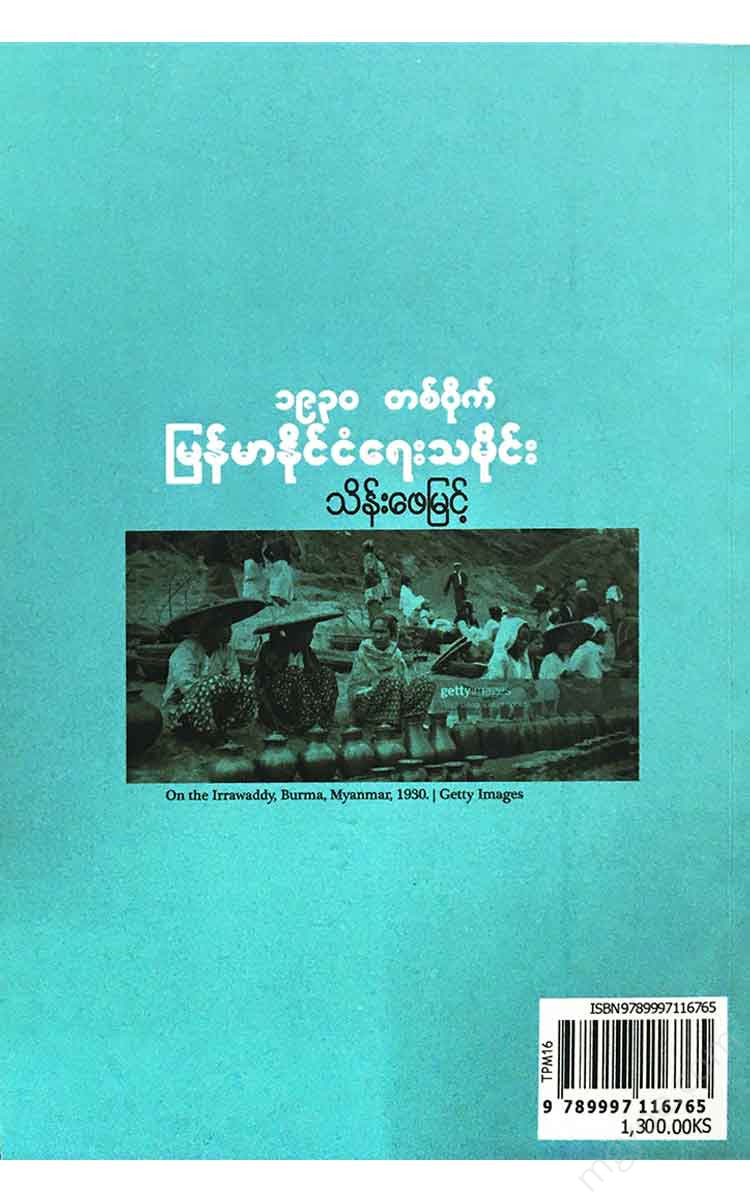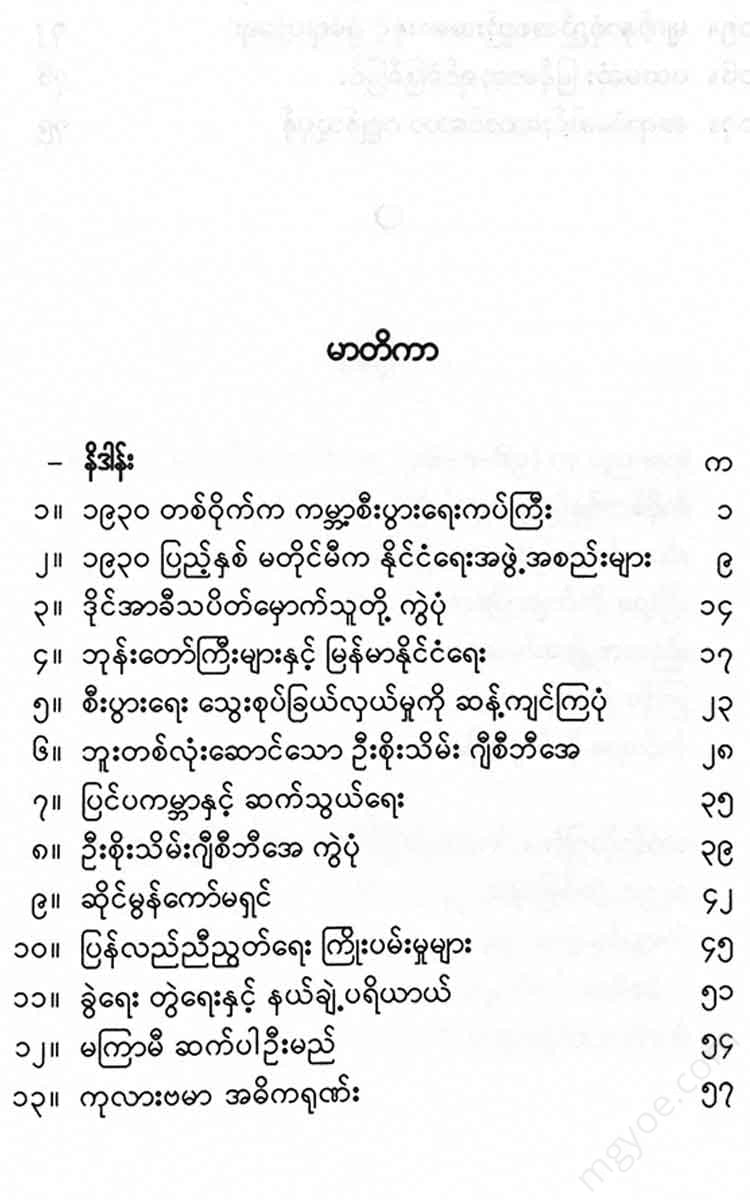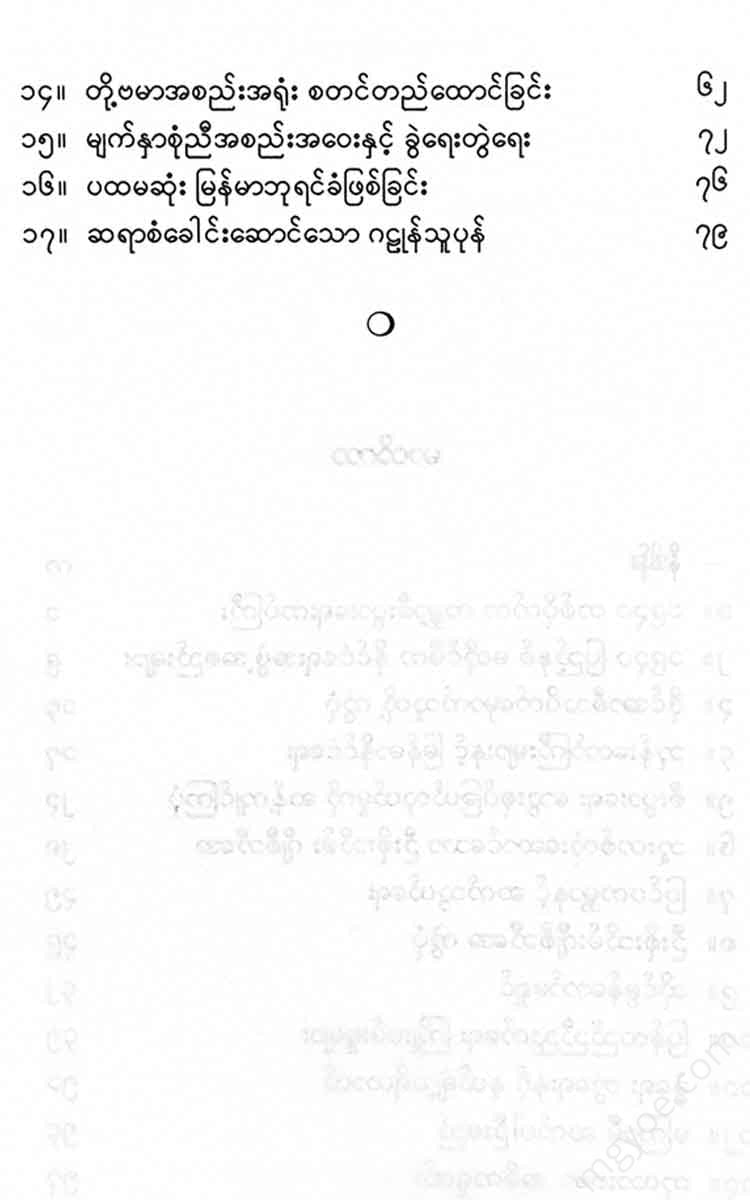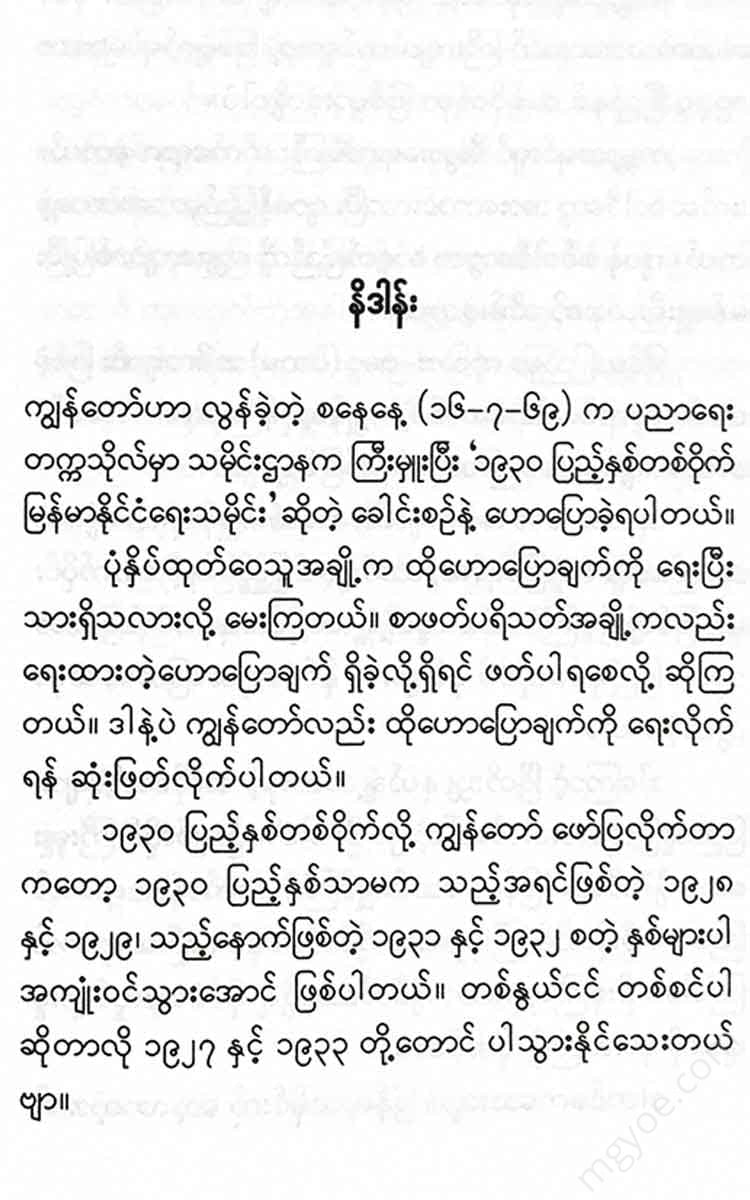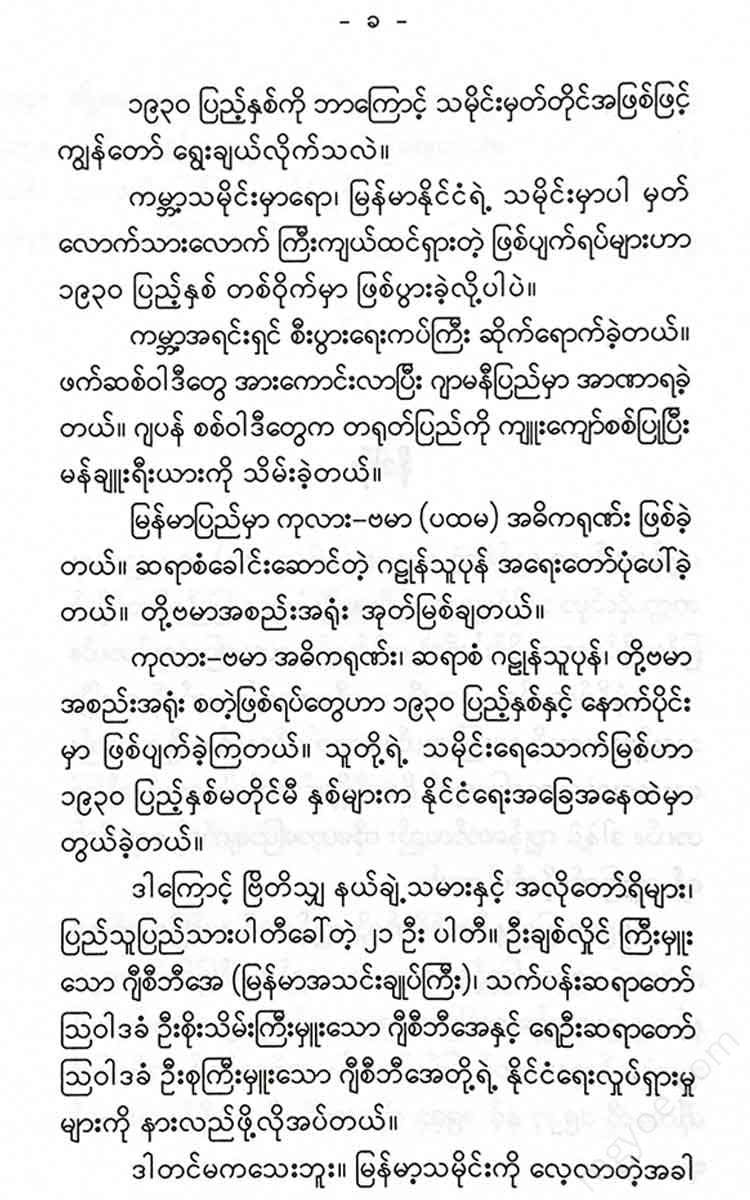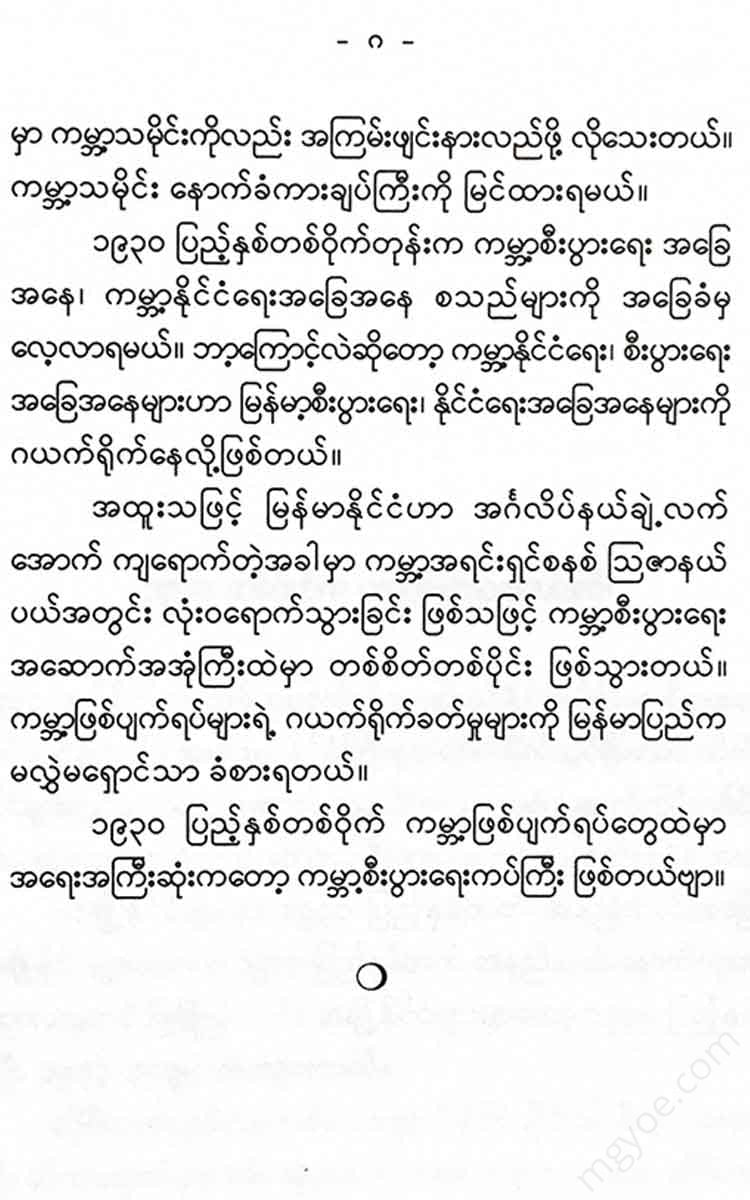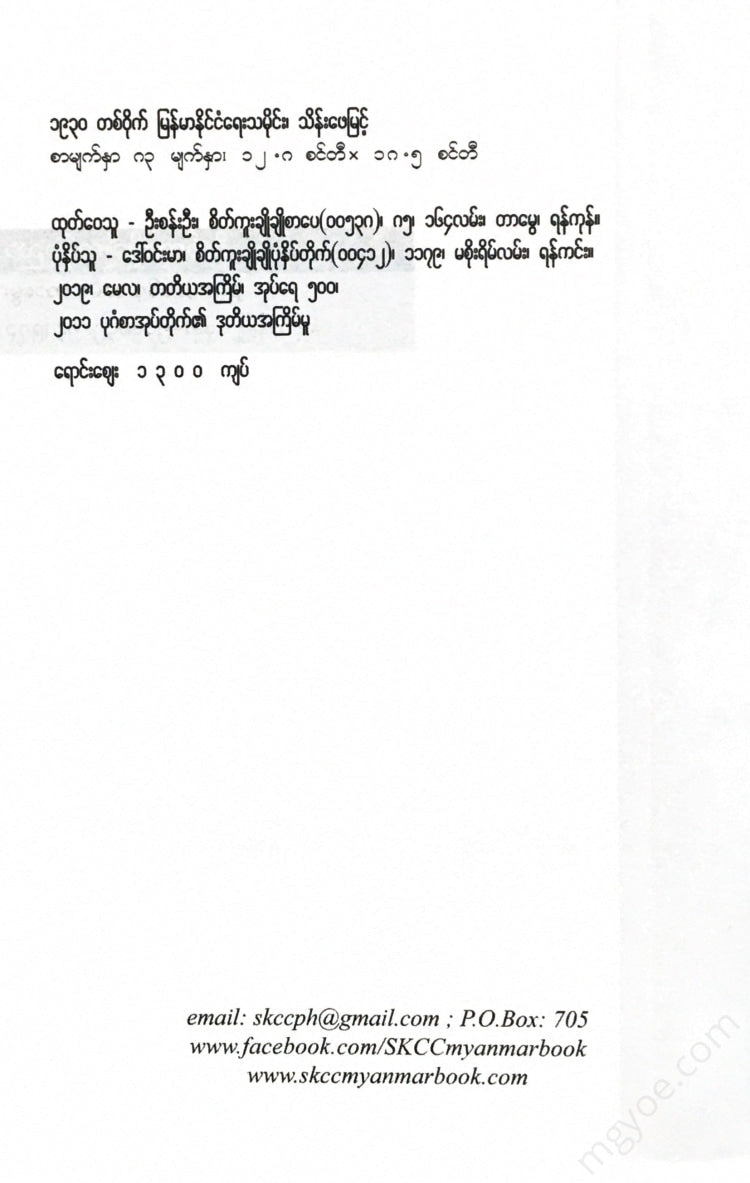စိတ်ကူးချိုချိုစာပေ
Thein Pe Myint - Myanmar Political History Around 1930
Thein Pe Myint - Myanmar Political History Around 1930
Couldn't load pickup availability
The global economic crisis around 1930
Around 1930, economic crisis hit every capitalist country in the world. The economic crisis spread both to the colonies, which were directly controlled by the capitalist powers, and to the semi-colonies, where they exerted indirect influence.
Some countries had economic crises a little earlier than 1930, some countries a little later than 1930. Some countries started in 1930 and ended in 1933.
The Great Depression hit every country in the world except the Soviet Union. The Soviet Union, where socialism flourished, covered one-sixth of the Earth's surface, so five-sixths of the Earth's surface was affected by the Great Depression.
We can argue about the reasons why this economic crisis happened, but we can no longer deny that a capitalist economic crisis occurred around the 1930s.
What is the most significant result of the global economic crisis? A decline in industrial production.
The worst was in the United States, the most powerful and largest capitalist country.
If we set the industrial production volume in 1929 at 100, we would see the opposite in the years of the crisis.
Great Britain, while not as badly affected as other major capitalist countries during this economic crisis, has seen a significant decline in production compared to 1913. (1913 was the year Britain was the world's dominant power before World War I.)
In 1913, Britain's industrial output was 100, but in 1932 it was only 82.5.
During the global economic crisis, not only did industrial production decline, but agricultural production also declined.
As part of an economic structure, if one part falls, the other parts do not simply fall. Under capitalism, agricultural production is subordinate to industrial production. So not only does agricultural production fall, but the prices of agricultural products also fall sharply.
When faced with an economic crisis, the most powerful capitalists in the capitalist world, the big monopolies and big financiers, resort to the phrase "set the world on fire and trample on the victims."
They try to avoid the economic crisis by trampling on those who are weaker than them. They devour weaker industrial enterprises, small manufacturing enterprises, small financial enterprises, etc. They kill weaker competitors. They close down unprofitable enterprises.
As a result, many small capitalists, small producers, etc., were destroyed. Many workers who worked for them were unemployed.
The big capitalists have shifted the burden of the economic crisis onto the shoulders of the workers. They have reduced the wages of the workers, demanded more and more work within the stipulated time, and intensified the exploitation and bloodletting. If that were not enough, they have fired the workers.
The big capitalist monopolies have also shifted the burden of the economic crisis onto the shoulders of the peasants.
They suppressed the prices of raw materials produced by the peasants. They also transferred the burden of the Great Depression onto the shoulders of the people of the colonies and semi-colonies.
As explained above, when the monopoly capitalists (or the most powerful financiers) tried to solve the problems arising from the Great Depression with a "who cares?" attitude, many workers became unemployed.
The first result of the Great Depression was unemployment. On the other hand, unsold goods piled up. Many factories closed.
On the other hand, there are millions of unemployed people who want to work but cannot.
In Great Britain, the number of unemployed was 3 million, in Germany 5 million, and in the United States 10 million. In addition, there were more than 10 million part-time unemployed, those who worked for a few days or hours and were unemployed the rest of the time. Millions of farmers were also impoverished. They lost their jobs.
The fate of the working people in all the capitalist countries, countries under capitalist influence, colonial and semi-colonial countries, which occupy five-sixths of the globe, is terrible. Among them, the fate of the working people in colonial countries like India and Burma is the worst.
When the economic crisis hit, the big capitalists not only oppressed the poor, but also competed with each other, fighting and escalating conflicts.
As the global economy has declined and the purchasing power of working people has decreased, the markets of the big capitalists have shrunk. International trade has declined significantly.
The more the market shrinks, the more competition there is, and the more people are competing for market share.
They destroy many goods because they fear that if prices fall too low in the market, the entire capitalist profit system will collapse.
Whether it's your own country or a country that has a lot of influence, other imperialist capitalists have been pushing in and blocking the market by raising taxes. Tariff wars and trade wars have become widespread.
The trade wars and tariff wars fought by the British imperialist capitalists against other imperialist capitalists such as Japan, Germany, and the United States were the main causes of the war.
Myanmar, the base, can join without any objection.
During the Great Depression, when they waged trade wars and tax wars, the dominant power had the advantage. So the dominant power began to talk about redistributing the world. Now that they could not give up, and the dominant power wanted to plunder, they began to talk about real armed warfare. They began to prepare for war. Political parties that encouraged revenge, war, and ethnic division and nationalism became stronger.
The working class, who have suffered the most from the economic crisis and are increasingly exposed to exploitation, are fighting back against the big capitalist monopolies. Class struggles have become much more intense.
The capitalist monopolies try to cover up class struggle, class politics, and class ideology with ethnic division, nationalism, and militarism. Not only that, they suppress them with violence. They revoke democratic rights.
Faced with an economic crisis, the monopoly capitalists no longer trust even capitalist parliamentary democracy. As a result, fascism and fascist parties have grown stronger. In some countries, fascists have seized power.
In the years leading up to the 1930s, there was a lot of talk about disarmament, but by the 1930s, there was only talk of rearmament.
In fact, for monopoly capitalists, the arms and ammunition manufacturing industry is a very profitable business.
They are relying on the arms industry as a way out of the economic crisis. They used to call for disarmament, but their only desire is to rearm.
Two paths are clearly visible in the entire world. The redistribution of the world by the monopoly capitalists, the continued exploitation and exploitation of the capitalist system, and the desire for war are one path, while the revolution of the working people for anti-imperialist, national independence, and class liberation is the other path.
These two paths greatly influenced the political history of Burma around the 1930s.

